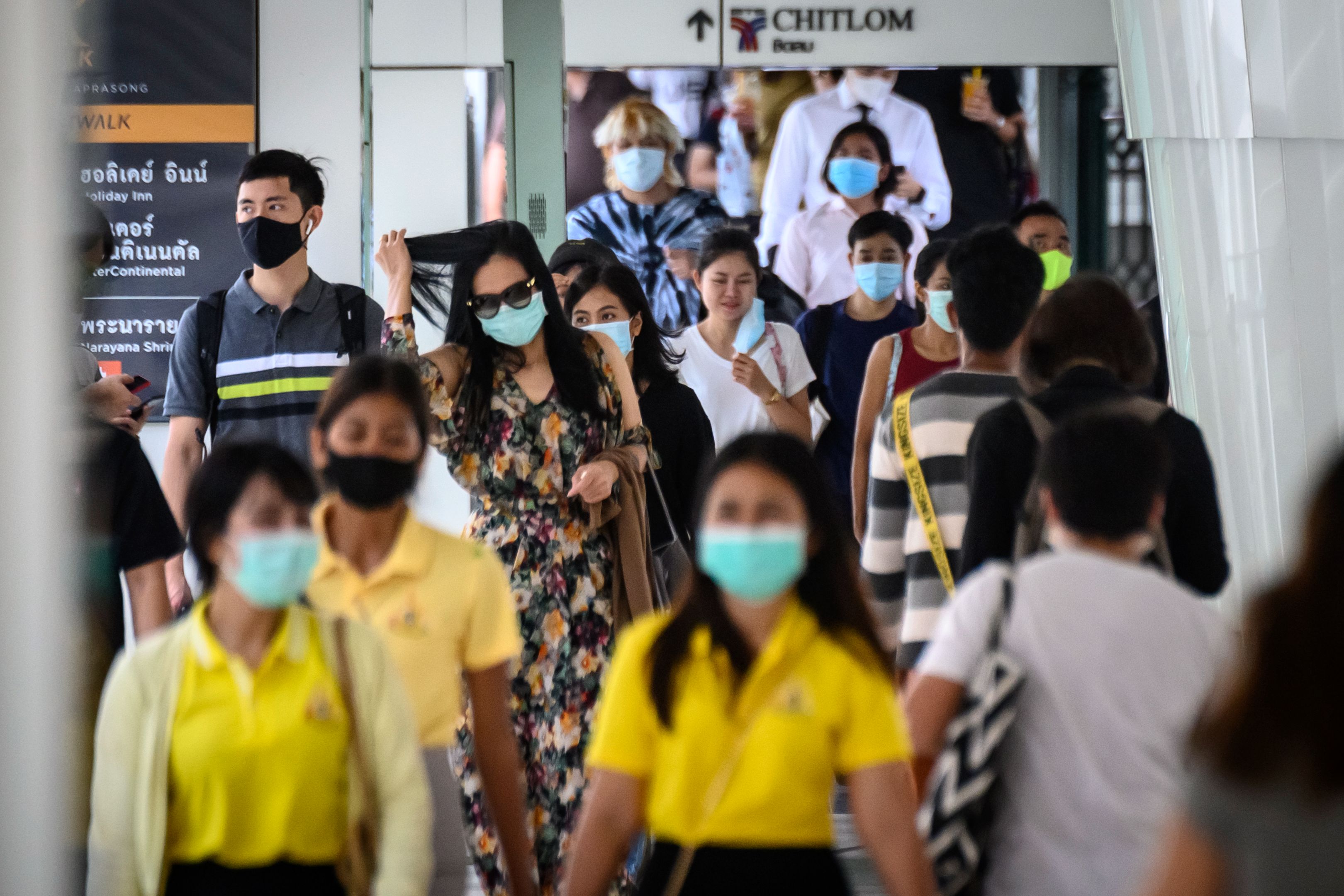Thailand to extend state of emergency to end of August
Sign up now: Get insights on Asia's fast-moving developments

People wearing face masks at a pedestrian bridge in downtown Bangkok on July 8, 2020.
PHOTO: AFP
BANGKOK - Thailand is planning to extend its state of emergency by one month to end of August, the reason given being the need to effectively control the Covid-19 outbreak as it gradually opens up its borders.
"It is necessary for us to open up our country more… to revive the economy," said National Security Council secretary-general Somsak Rungsita on Wednesday (July 22).
"The only tool (we have) to deal with this transition is the emergency decree."
He promised that the authorities will not use the decree to prohibit public gatherings. This was said in response to previous allegations that the law was being abused to control growing street protests against the government.
The Cabinet is expected to approve the extension this coming Tuesday.
Thailand has not recorded any local transmission of the coronavirus in two months but unrest is growing.
Prime Minister Prayut Chan-o-cha is overseeing a tenuous Cabinet reshuffle after six ministers resigned in the past week amid upheaval in the ruling Palang Pracharath Party.
Among the vacated seats are those helming the finance, energy and labour ministries.
Meanwhile, student-led protests have sprung up across the Kingdom. Over 2,000 people gathered in Bangkok on Saturday (July 18) to demand that the parliament be dissolved and the Constitution amended.
The Bangkok rally was Thailand's biggest protest since March, when a state of emergency was imposed, enforcing social distancing and limiting large gatherings.
Smaller protests have also taken place in Chiang Mai and Ubon Ratchathani provinces and more are planned in several other provinces for this week.
Over the past two months, Bangkok has lifted its night curfew and eased restrictions on inter-provincial travel to get its sputtering economy back on track.
But border restrictions remain in place and have caused tourist arrivals to plunge. This is a key factor in the central bank's projection that the economy will shrink by 8.1 per cent this year.
Despite the sagging economy, the Thai public remains wary that foreign arrivals may trigger a second wave of infections.
Two fresh cases involving foreigners who were exempted from state quarantine caused a public uproar a week ago and forced the government to tighten control over these special arrangements.
The first imported case was an Egyptian military officer on a layover in Rayong province who visited a shopping centre there. The second was the daughter of a Sudanese diplomat, who had travelled with her family to a Bangkok condominium after landing in Thailand.
No infections have been found so far among over 7,000 possibly exposed people who were tested.
These lapses, however, caused mass cancellations of hotel bookings in Rayong.
Two people who held up protest placards when Mr Prayut visited Rayong last week were reportedly charged with violating the emergency decree.


